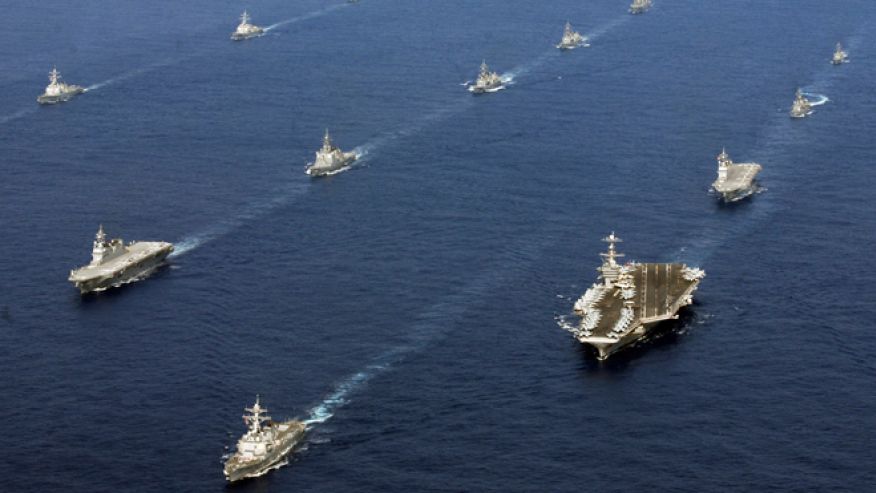MANILA, Philippines — After Chinese President Xi Jinping championed the new Asian security concept, Chinese media loyal to the ruling Communist Party exerted to explain the vision believed to offset the dominance of the United States.
State-run Global Times' recent editorial notes how Asian nations including China's rival maritime claimants Philippines, Japan and Vietnam cannot look to the United States to guarantee security in the rapidly growing region.
'The new security vision for Asia proposed by Xi means that we cannot count on countries beyond Asia to guarantee Asian security," says the piece's author, Wang Yiwei, director of international affairs at Renmin University of China.
"Asian security issues need to be resolved in an Asian way. The Western world is used to forging alliances and fermenting conflicts and confrontations to gain profits, which does not conform with the situation in rapidly developing Asia," the editorial adds.
Xi intends to have his proposed "new regional security cooperation architecture" be akin to the Association of Southeast Asian Nations, the 24-nation CICA Summit and the Shanghai Cooperation Organization as they were all created by Asians.
Beijing also believes American President Barack Obama's rebalancing policy toward Asia disrupts the security environment in the region rather than strengthens it.
"Security in Asia should be safeguarded by the wisdom of the Asian people. Leftover issues including territorial disputes, internal conflicts caused by globalization and Washington's 'pivot to Asia' policy have been affecting the security landscape across Asia," the newspaper says.
US defense allies Philippines and Japan, as well as other neighboring countries, meanwhile, welcomed the shift in the US' foreign policy and renewed defense ties with Washington amid the emergence of China as a global power with a rapidly growing maritime military might.
China insists that the US is not a party to the disputes and the concept of territorial sovereignty of nations be outside Western definitions.
"The original order in Asia has been ravaged, which constitutes the source of China's territorial disputes with its neighbors. This is the historical background of the new Asian security view," the piece reads.
An all-Asian outlook, it says, aims to build a future with a deep regional integration "the community of common interests, the community of common destiny and the community of common values."
Related: US exec tells Beijing: Neighbors sense irony in your word
China and the United States are meeting on outstanding strategic and security issues including the hot contest over the Sout China Sea.
The New York Times' Jane Perlez says both countries are not in the mood to improve on their "complicated" diplomatic situation and have set low expectations for progress on the issues.
Observers also note that the two powers may only agree on a bilateral investment treaty.
Washington's top policymaker for Asia, however, argues that the US has been the most supportive of China's position in the global stage.
"No country, no major power, has done more to facilitate the emergence of a prosperous and stable China than the United States," says Daniel Russel, US assistant secretary of state for East Asian and Pacific affairs, in a recent interview with the Asahi Shimbun.
"What we ask in exchange for the ability to help shape the rules that have allowed China to grow and prosper is that China accepts the principle and rules that bind the big and strong countries, as well as the small and weak," he added.


